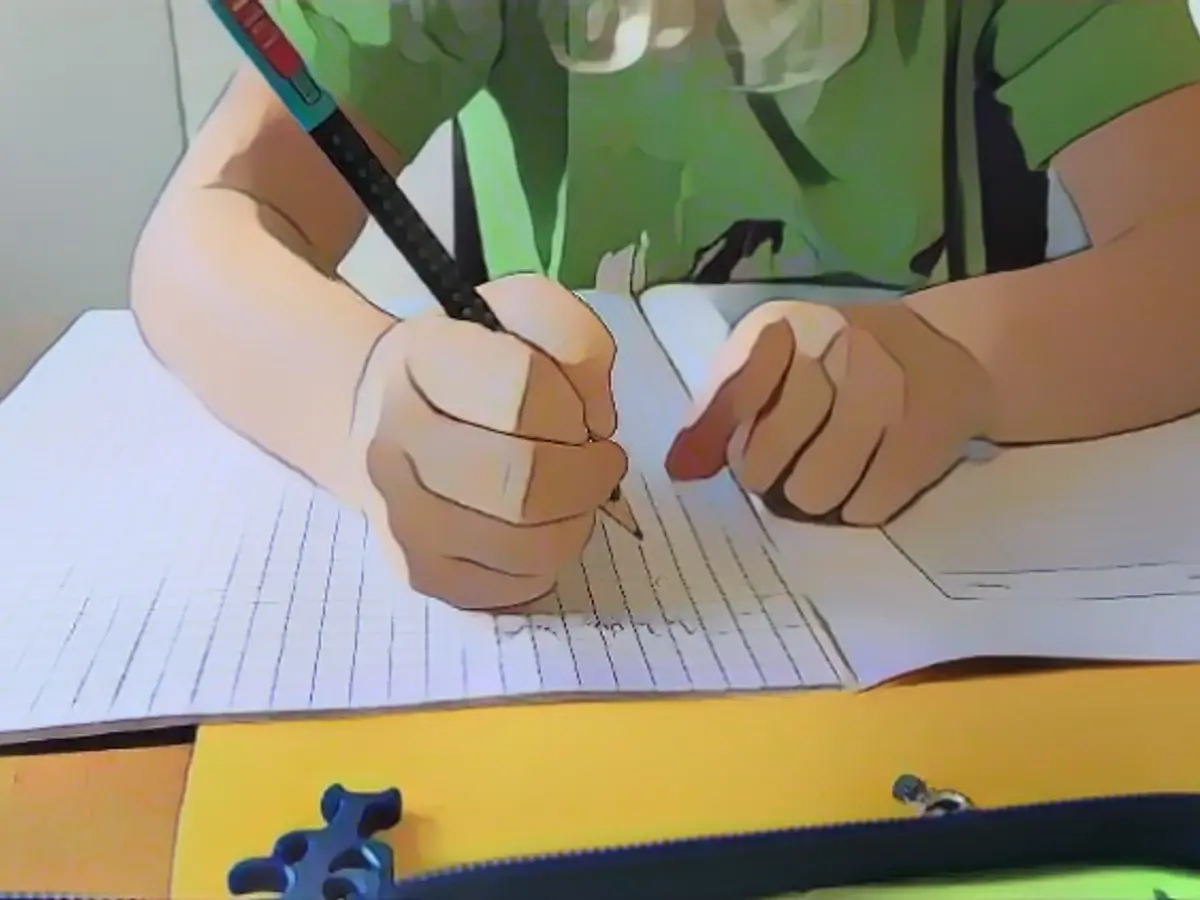"The German school system is run down"
The OECD presents the latest PISA results. They are worse than ever for Germany. Education experts react with little surprise. Corona has reinforced developments that have been going wrong in education policy for some time.
The poor performance of pupils in Germany in the new PISA study came as no surprise to sociologist Aladin El-Mafaalani. "We have been observing this trend for around ten years. Corona has only intensified it," he tells Stern magazine. "The German school system is run down, there is a shortage of skilled workers. And migration has increased," says El-Mafaalani, who mainly researches educational equality and migration at the University of Osnabrück.
"In urban areas, the majority of children in daycare centers and elementary school now have a migration background. There, 20 different languages are spoken in elementary school." According to the sociologist, the school system is not prepared for this new "super diversity". "We need something like a special fund for education of 100 billion euros." To this end, El-Mafaalani is calling for the expansion of all-day schools that can support and stimulate all children. After all, too much responsibility still lies with the parents. This is unfair for children from disadvantaged homes because their fathers and mothers are unable to support them in their learning. But it is also unfair for children of working parents who need a high quality of school all day.
Is the promise of education being kept?
For the Kinderschutzbund, the results are further proof that the discrimination of poor children in the German education system is systematic. Germany is still failing to "fulfill the promise of advancement through education", said Sabine Andresen, President of the Child Protection Association, to the Funke Mediengruppe newspapers. "We are failing in our own ambition to offer all children fair opportunities."
The fact that children - regardless of their origin - are on average worse at reading and arithmetic today than they were in 2018 "must alarm us", Andresen said. Apparently, it has not been possible to make up for the deficits from the coronavirus pandemic. On the contrary: "Children are increasingly standing in front of closed school gates because schools are not adequately staffed or equipped in terms of infrastructure."
Controversial economic policy approach
In response to the results of the study, the German Teachers' Association is calling for more efforts to be made in early childhood education. After all, basic skills in reading, writing and arithmetic are the key to sustainable educational success, association president Stefan Düll told Funke Mediengruppe. Düll emphasized that his recipe for more equal opportunities in the school system would be compulsory pre-school years, language proficiency tests in daycare centres and targeted language support.
He criticized the business-oriented approach of the PISA study, which should not obscure the importance of artistic subjects that promote precisely these cultural success factors. However, without a sufficient number of teachers, it would not work. Together with school psychologists and educators, they would have to have more time and skills to be able to better support children socially and emotionally. In addition, classes and learning groups need to be smaller and school buildings need to be better equipped to create an environment conducive to concentration and appreciation.
However, the correlation between socio-economic status and learning success cannot be eliminated through school support alone. "The significance of the coronavirus period with school closures and distance learning for deficits in skills acquisition and social-emotional well-being remains to be seen." Düll continues to rely on parents - in the sense of a "trusting cooperation between home and school".
Read also:
- Given the poor performance of German students in the latest PISA study, there's a need for a significant overhaul in the international education policy, as suggested by the German Teachers' Association, who propose compulsory pre-school years, language proficiency tests, and targeted language support.
- The international PISA study highlights the urgent need for an expansion of all-day schools in urban areas with high migrant populations, as mentioned by sociologist Aladin El-Mafaalani, to address the challenges of "super diversity" and ensure that every child, regardless of their background, has equal opportunities for education.
Source: www.ntv.de






